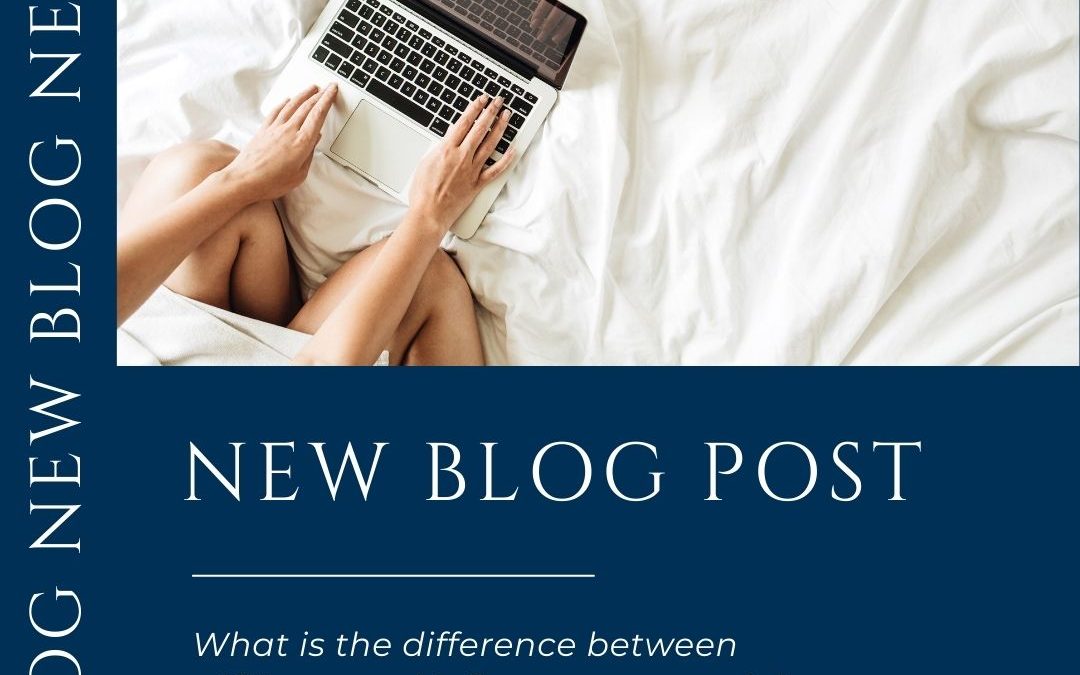We’ll look at the best options for small businesses on a budget, success stories, what to avoid and the importance of community.
Having a small business is a lot of work.
On top of running the day-to-day, you have to get clients to your door and marketing on social media is an important part of that. Affiliate and influencer marketing can be a great time and stress reliever (and also cost-effective) but it’s important to know the ins and outs first so you can assess which one is right for your business.
What we will look at:
• Who is an affiliate on social media?
• Who is an influencer on social media?
• The cycle of affiliate and influencer digital marketing.
• Examples of affiliate marketing on social media.
• Examples of influencer marketing on social media.
• The advantages and disadvantages of affiliate marketing on social media. • The advantages and disadvantages of influencer marketing on social media. • Success stories of affiliate and influencer marketing campaigns.
• Which influencers and affiliates should you be looking for?
• Common industries that use affiliate marketing.
• Common industries that use influencer marketing.
• What will affiliate and influencer marketing cost?
• Affiliate and influencer marketing for a small business on social media: points to remember.
Who is an affiliate on social media?
An affiliate is a person or organisation that is officially attached to a larger body. You can reach out to them personally and it’s easier and quicker than you think to get the ball rolling. They could even be your group of friends who can promote your work!
Top facts on an Affiliate:
• An affiliate can get paid via promo codes.
• They don’t need to be an influencer with lots of followers.
• They can promote your product on a small social media account.
• An affiliate could have a product review blog page with links to your website.
• An affiliate can also have a link to your website on their social page.
Who is an influencer on social media?
An influencer is someone who has a large following on social media. For small businesses, it’s essential to assess if they fall into your community and niche. A social media influencer can become your brand affiliate.
Stats on influencers:
• Micro-influencer – 5,000-100,000 followers (Small businesses, these are your influencers!)
• Mid-tier influencer – 100,000- 500,000 followers.
• Macro influencer – 500,000 – 1,000,000 followers.
• Mega influencer – 1,000,000 plus followers.
• An influencer can either use promo codes, a flat rate fee or product gifting as a form of payment.
The cycle of affiliate and influencer
digital marketing
Although both affiliates and influencers can market
differently, they both follow the cycle of an advertiser
(your business) to the publisher (influencer/affiliate)
through to the consumer which directs them back to the
advertiser (your business).
Example of affiliate marketing on social
media
You’re scrolling through Instagram and your favourite
account pops up. They’re reviewing a product a small business has sent them. They recommend buying the product and suggest you use their promotional code to get a 10% discount.
You decide to buy the product and when you type in the promo code, the business knows which of their affiliates sent you. The affiliate that recommended the product will get paid either on pay-per-click (PPC) or once the payment has gone through.
Examples of influencer marketing on social media
Dunkin’ Donuts has one of the biggest influencer marketing campaigns, signing a huge deal with celebrity TikTok user Charli D’Amelio, with over 144.5 million followers. They used influencer collaboration within a long-term partnership and also use their staff as brand ambassadors as well.
A great example of utilising the correct community is Nike’s influencer campaign to promote their products using upcoming athletes. The shared community had brilliant engagement results, targeting the right people.
The advantages and disadvantages of affiliate marketing on social media
A small business should look at affiliate marketing as a long-term partnership. You’re seeking promotion for your business and need to be offering something in return whilst keeping costs to a minimum. Promo codes are a great way of doing this. Yet without
proper research into your affiliates, there’s a possibility of fraud through email spam and fake purchases.
Advantages of affiliate marketing:
• Low labour costs
• Possible quick returns
• Gain consumer insight
• Each affiliate can have a specific promo code so you can keep track of your top performing and lowest-performing affiliates.
• Incentivise customers
• You don’t pay anything unless the marketing is a success.
Disadvantages of affiliate marketing:
• The majority fail at affiliate marketing. This is due to:
1. Improper research;
2. A lack of engagement;
3. Uncompetitive commission; and
4. Targeting the wrong audience.
• Possibility of fraud.
• Potentially unsustainable.
The advantages and disadvantages of influencer marketing on social media:
Micro-influencers have a higher engagement rate than any larger influencer because of their community, niche and relatability. This smaller influencer has untapped potential for your business. Yet it’s easy to reach out to an influencer, get them to promote and think ‘job done,’ but if you choose the wrong industry influencer, it could lead to nothing, costing you money and time.
The advantages of influencer marketing (local and micro-influencers):
• A local micro-influencer can be better than a celebrity influencer for relevant engagement.
• Local micro-influencers that are part of your community can be beneficial, it’s about engagement and the types of followers they have.
• Higher chance of engagement with follow-through purchases.
The disadvantages of influencer marketing:
• If they are unrelated to your industry the marketing campaign won’t work.
• It can be unsustainable.
• Potentially costly.
• If an influencer gets caught in a PR storm (as they often do) it’s going to taint your credibility too.
Success stories of affiliates and influencer marketing campaigns
Jubblies is a small business that tried both affiliate and influencer marketing. On their website, they have a ‘Join, Advertise & Earn’ option. Establishing affiliates that are already
customers guarantee a genuine interest in the business and increase sales within the target community.
Their affiliate program
• Mums can sign up for their affiliate program and promote them on social media pages using promo codes as their form of payment with 10% of the total sale value.
Other affiliate options
• Mum bloggers amass a very loyal group, and they can review products and add links to the Jubblies site which gains them a percentage of the sale too. Their influencer marketing
• The company assumed wrongly that because the influencer they selected was a mum, she would have a high engagement from other mums.
• The engagement rates were low because her identity on social media wasn’t as a mum but under a different niche.
It’s important to research followers and assess which posts get the highest engagement and their relevance to your business.
The Dollar Shave Club is a brilliant example of a small business with a normal budget that had a fantastic marketing campaign. They had $4,500 for a marketing campaign, but because it was specific to their niche and informative the company took off. In 2016 the owners sold the company for over a billion dollars.
Airbnb started by renting three air mattresses. They started an affiliate referral program which paid the affiliates competitively. It’s now a staple home screen app and synonymous with travelling.
Spanx was created by Sara Blakely in 1998. This was before social media influencer marketing, but she also arguably invented it so I think you’ll find it useful. In 1998 Blakely quit her job with $5,000 in savings and created Spanx. She gifted her product to an influencer. The influencer loved it and decided to put it on their show. The influencer was Oprah Winfrey. By 2012 Blakely was in Forbes as the youngest female self-made billionaire.
Which influencers and affiliates should you be looking for? How to find small influencers on Instagram – remember you’re looking for small business influencers.
If your company is a small business which oversees pop-up restaurants in London, there’s little point in paying a mega-influencer in California to promote your services.
So a London hospitality service’s community will be London food bloggers and London restaurants on Instagram, TikTok or blogs and their followers are your niche local community.
Within this community of followers are potential affiliates that can become brand ambassadors for your small business.
If a London food blogger or restaurant has a thousand followers, but each post receives thousands of impressions then they have a high engagement and loyal following.
Micro-influencers have a very high engagement rate, they also charge less than bigger influencers and if your product aligns with their community (which it should) then they will be genuinely interested in the benefit it will serve to your shared niche community.
Common industries that use affiliate marketing
The fashion industry dominates the affiliate marketing game, with health and fitness coming in second. These industries do well because they offer a competitive commission and have affiliate programs on their website which draw in more people.
You can also replicate this for small business affiliate programs just like Jubblies company did, and draw from your current customer base.
Common industries that use influencer marketing Fashion and healthcare continue to dominate the influencer marketing industry, though other successful industries include travel, lifestyle, business and technology.
An influencer like Mara La Fontan, a successful Instagram model with 914,000 followers who regularly markets high-end fashion products, is an example of influencer marketing done right for her niche and community.
What will affiliate and influencer marketing cost? Promo codes can cost you between 5-30% of your total sale. It’s a big difference and so staying on top of your outgoings on affiliates and influencer marketing is key. You need to be seeing a good return on investment, otherwise you might need to re-analyse your system.
Affiliate costs:
• A promo code can be a 10% discount on your product/service
• An affiliate can gain 10% of the total value of the discounted sale
• Product gifting in return for product reviews
Influencer costs:
• Similar costs as an affiliate but possibly also a flat fee for them to promote your business
The great thing about promo/coupon codes for affiliates is that they only get paid once you get a sale. Though, sometimes product gifting in return for a video review is more cost-effective.
Affiliate and influencer marketing for a small business on social media: points to remember.
• Assess your budget for a marketing campaign with affiliates and influencers on social media and stick to it.
• A diversified portfolio of affiliates has the potential to gain interest in your brand with a wider audience.
• Local micro-influencers within your niche and local community are going to be useful to you, but remember, you’re interlinking your brand image with them so make sure you do your research on them as you would any prospective employee.
• Follow the cycle of digital marketing. If it’s not working, step back and reassess your methods.
• Keep track of your costs and promo codes to find out which affiliates are high performing and which are low performing.
• Learn from the Jubblies affiliate program – you don’t need to have a huge budget to be a success!


Recent Comments